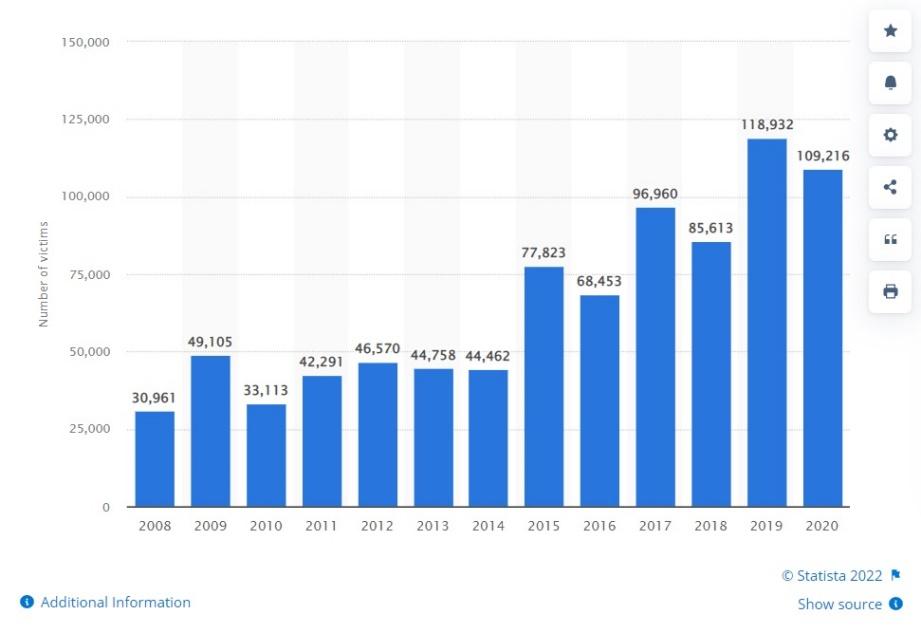Introduction
Human trafficking of adults is one of the most essential and significant issues of modern times, which affects the lives of millions of people in almost every corner of the globe. Moreover, it is one of the most shameful crimes, depriving a victim of the right to freedom and dignity. The most well-known forms of human trafficking are forced labor exploitation, the satisfaction of sexual needs, begging, and even organ extraction. Human trafficking among adults is one of the most egregious, inhumane, and illegal situations in modern society, which does not recognize national borders.
An Overview of the Social Issue
Human trafficking is the exploitation of people in the form of slave labor or sex. Exploiting people to obtain certain benefits is carried out on the principle of coercion and without the prior consent of the victim (Schwarz, 2021). People are often deceived, threatened, forced to pay unreasonable debts, or work for three. In fact, this is an illegal and particularly serious crime, which entails responsibility for violating human and civil rights (Schwarz, 2021). Perhaps, adult trafficking is the third-largest type of prohibited trade on the planet.
Influence
The presence of many different types of human trafficking means no single typical portrait of victims. The cases occurring in all parts of the world and targets indicate that sex, age, or origin do not matter. Nevertheless, one should mention that this problem has the most significant impact on refugees, the homeless, and socially unprotected segments of the population (Chisolm-Straker et al., 2019). Human traffickers often pay attention to this category of citizens, mainly showing a particular interest in fair sex. Having lured “targets” to “their side” with the help of cunning tricks and manipulations, they control and manage victims from the point of view of unilateral gain.
Global Statistics
There is a relatively negative trend in the number of victims in the last decade of the 21st century worldwide. Only at the “official” level, about 110 thousand victims of trafficking for adults have been identified, and this figure only continues to grow steadily almost every year. (Statista Research Department, 2021). This characteristic can be traced by the example of the following image taken from the verified Internet source Statista.

Causes of the Social Issue
As practice shows, trafficking for adults has deep roots in the spheres of economic, social, cultural, and moral relations in society. Most often, the existing causes of the social problem include poverty, limited resources, discrimination, gaps in the level of the country’s development, cultural trends, and many other equally important aspects (Kleden & Atti, 2019). Significantly, one of the factors contributing to the flourishing of human trafficking is the demand for sexual services and cheap labor for construction, manufacturing, industry, and household.
Effects of the Social Issue
In general, such an issue has unfortunate and sometimes irreversible consequences for both the adult individual and society. In most cases, victims have cognitive and psychological disorders: they are most at risk of developing post-traumatic stress disorder, sleep and appetite disorders, self-esteem problems, and difficulty communicating with people (Ottisova et al., 2018). Furthermore, such illegal activities may pose a threat to national security. From the point of view of public health, there is a risk of the spread of a number of diseases in society, such as HIV/AIDS and other sexually transmitted infections. Such circumstances can have long-term consequences for the well-being of residents of a particular country. Basically, the importance of family institutions and healthy relationships between a man and a woman is at risk.
How Social Specialists are Working
To date, there are many ways to help adults who have suffered from exploitation as a result of human trafficking. Thus, for example, social workers assist adults, as well as their families, with problems of everyday life and in crisis situations after incidents at the micro-level. In addition, the issue can be solved at the meso-level, for example, within the United States, with the help of a particular law on the protection of victims of human trafficking and violence from 2000 (Schwarz, 2021). In essence, a social worker can provide an initiative to create more favorable conditions for victims under care. Additionally, a social worker should work hard, using available opportunities and resources. Hard work, high ambitions, and the desire to change the world for the better will help minimize the number of victims and further eradicate the problem at the macro level.
Conclusion
Human trafficking among the adult population is one of the forms of modern slavery, a crime against human rights, the individual, and the state. In brief, these activities are characterized as an illegal type of entrepreneurship, which in some cases, uses international migration flows for its benefit. Among the most frequent victims of trafficking, one can single out national minorities, refugees, the “oppressed,” socially unprotected category of citizens, and, especially women. The driving forces of human trafficking are poverty, inequality, lack of equal opportunities, and much more. Often, this problem is a transnational crime, similar to the international drug trade and illegal arms trafficking. As a rule, the government, individual organizations, social workers, doctors, and doctors are engaged in combating human trafficking.
References
Chisolm-Straker, M., Sze, J., Einbond, J., White, J., & Stoklosa, H. (2019). Screening for human trafficking among homeless young adults.Children and Youth Services Review, 98, pp. 72-79. Web.
Kleden, M. A., & Atti, A. (2019). Analysis of the causes of human trafficking in east nusa tenggara province. Journal of Social and Political Sciences, 2(2), pp. 313-319. Web.
Ottisova, L., Smith, P., & Oram, S. (2018). Psychological consequences of human trafficking: Complex posttraumatic stress disorder in trafficked children.Behavioral Medicine, 44(3), pp. 234-241. Web.
Statista Research Department. (2021). Number of human trafficking victims worldwide 2008-2020. Statista. Web.
Schwarz, C. (2021). Sex trafficking isn’t what you think: 4 myths debunked – and 1 real-world way to prevent sexual exploitation. The Conversation. Web.